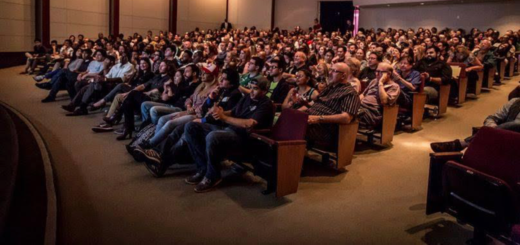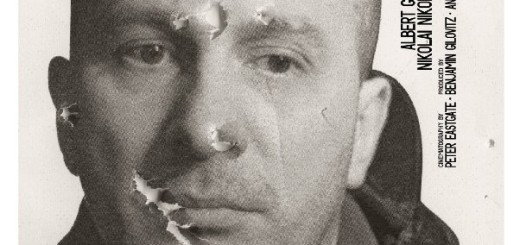Interview: Natalia Leite and Leah McKendrick’s M.F.A.
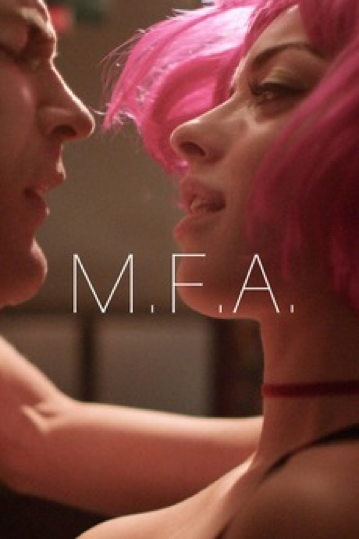
Film Editor Sergio Zaciu got on the phone with director Natalia Leite and screenwriter/actress Leah McKendrick to discuss their latest film, M.F.A. A harrowing and topical inversion of the rape-revenge exploitation film, their indie outing dares to open up the dialogue on campus rape by framing its thriller trappings around the tragic, emotional backdrop of a pressing social issue. Shot on a shoestring budget on the Chapman University campus, M.F.A played at 2017’s SXSW film festival, and marks a fascinating entry into the horror canon, doubly so for its brilliant, DIY, lo-fi filmmaking.
Natalia and Leah, thank you so much for joining me.
N.L.: Of course!
I’m sure you’re going to talk with countless interviewers about what you’re trying to say with your film, especially because it’s so topical. So what I wanted to do instead was focus on the actual production of such a low budget endeavor.
N.L.: Okay, cool!
You guys just basically went for it and made a movie, which is super impressive. So my biggest question is how you convinced yourself that you can just go out and make a movie!
N.L.: [Laughs] Thanks. Well this isn’t my first film, I had made another feature [2015’s BARE] and Leah had made web shows that won awards. We made short films, done documentary stuff. You know, we felt prepared since we had been doing it for a while. Of course working on a low budget is really tricky, but you just have to work with the cards you’re dealt and learn how to adapt. You gotta ask for favors and not get stuck, that kind of thing. That’s part of the journey for us.
Leah, this is more for you. Since you come from an acting background, what was it like separating yourself from being an actor IN the film and just making a GOOD film first and foremost?
L.M.: Honestly, that balance is a lot easier than balancing being an actor and a producer.
So what was that like?
L.M.: It was really tough. When you’re at such a low budget you have so many fires you always have to put out and you never have enough time and stay on schedule. As an actor you don’t have to deal with that kind of stuff, you just want to be present in your world and become your character. As a writer, it’s a very creative process and somewhat of an independent experience that the director can guide you on.
Do you think there was ever a time when you thought this movie was never going to get made in the producer’s shoes?
L.M.: Every day. You know there were things like a lead actor pulling out the day before, money not coming in when it was supposed to, locations falling through because of schedules being changed, our truck crashing into a parked car. I mean . . . life just happens. Honestly, I don’t know if I would recommend to people to do what we did. [Laughs] But I guess that’s the beauty of filmmaking, is that it starts as one person’s wild dream and it just grows and grows and grows until at a certain point it’s like a moving train that’s going to go with or without me. If it would have all been under my control I might have called the whole thing off. But that’s the beauty of it!
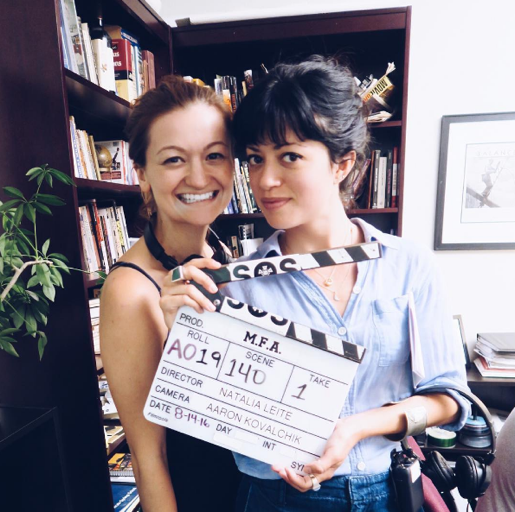
Image Courtesy of Natalia Leite and Leah McKendrick
So how did you come on board to direct the project, Natalia?
N.L.: Leah had seen my previous work. She was really looking for a female director; this project really had to be done by a female director. We chatted a bit about it and then I came out and met her. It just seemed like a really awesome fit. You never know with a film project, but with us, we really became friends. The collaboration was incredible and we really supported each other every step of the way. The film became a merger of both our ideas. There was no ego and nothing went wrong so I’m really grateful I was brought on board.
How did you go about financing the project?
L.M.: We had private investors. In fact, let me tell you a little bit about this, because I would read articles in hopes of figuring this out and they’d never provide answers, which would really piss me off. What I did was ready everything I could find and get coffee with everyone who had already done it. Everyone talks about it like it’s a thing but nobody has answers, so I asked people I could trust. A lot of people said, “Go to your hometown. If you’re from Iowa, tell the local business owners that you’re making a movie and ask if they’d want to invest in a film. Tell your family, tell your neighbors. Find everyone who has never considered investing in a film and get them interested. Contact every group you’re part of. Fraternities, sororities, clubs, help groups, whatever.” I was also told that someone who didn’t know me would never invest in my project. And that would be [somewhat] true. I sent out 200 cold emails to production companies that were female-owned and nobody responded except one of my biggest investors. I put my own money in and Natalia came with people who would support her. Once I believed that my script was good enough I told everybody. And things happened. People came out of the woodwork. It’s really an important thing if you don’t have all your money, but the magic is that investors begin to realize that something is going to happen with or without them, at which point they begin to be interested in putting down money. I really don’t like believing that I’ll just write this great screenplay and someone will just swoop in and take me under their wing. I mean, that happens, but not very often, so I set out to do it myself. I might not be able to pitch my film to a studio, but I can do the same thing to private investors.
Do you want to add anything, Natalia?
N.L.: For me my experience was a little different. I worked my ass off on this script and got it to a point that was ready for sharing. I showed it to people from my high school in Brazil, at which point I met a casting director who helped me put offers out. We said we had financing when really we had zero dollars. But once we had a lead attached, people started getting interested in putting money in. From the moment I got my lead it still took another year. So it’s not a quick process.
What was that process like considering that this was the first feature film you set out to make, Leah?
L.M.: It was a huge hurdle. We just really had to hustle. Even if somebody we knew didn’t want to invest, they probably knew somebody that did. So people would go, “You know what!?” and we’d find more investors that way. There were a lot of dead ends. I spent a ton of time speaking with people who didn’t understand the film or didn’t want to invest, but that’s okay! People really have to believe in you. What I learned was to really love myself and love my film. I would sit in a room and just really pitch my project, and show how much I love it. One of my investors even said, “I don’t know anything you just said, but I like you, so I’ll invest.” [Laughs] I don’t know what that says about my pitching skills, but it proves that my heart was in the right place. I mean, I just want to make a movie. I’m not a con artist. I’m just a girl with a dream living in Los Angeles.
N.L.: And jumping off that, there are a ton of con artists in LA who will string you along, so pulling through, both as an investor or as a filmmaker, means a lot.
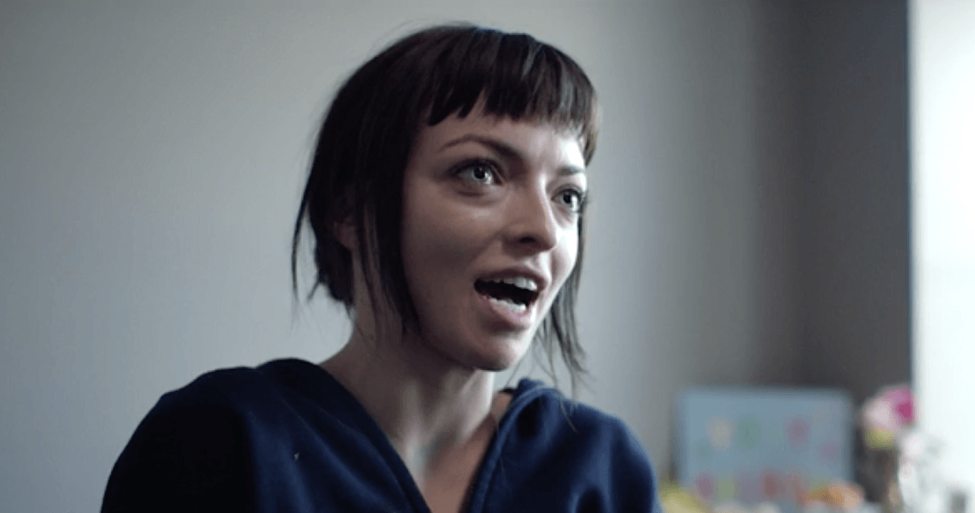
What was casting like? You ended up getting Francesca Eastwood, which is a pretty huge score.
L.M.: We had a great casting director and had a very brief time to shoot. Chapman University told us when school would start again, so we had to have everything shot before that. Fran came along saying she was interested. I met with her for lunch to talk over the project and really laid all the cards on the table: I told her what she had to commit to. She was down, understood, and was ready to go all the way. She actually came on pretty quickly.
What was it like working with her?
N.L.: She’s great! She’s very passionate and obviously very talented. She has such a magnetic presence and such an expressive face. But she was super invested and that’s what matters most, especially for these super low-budget conditions. She was wonderful.
What did you prioritize in your budget?
L.M.: That’s a pretty tough question. I think our DP Aaron [Kovalchik] was someone who we really needed to get, so we had to make sure that we could get him all the gear that he needed. We realized that even if it’s just Natalia, Francesca, and Aaron, we’ll somehow make it work. Then I would say that another priority was the art in the film. We agreed that if the art sucks in the movie, the audience won’t buy that she’s a talented artist or in the world of an MFA art program. So we found a really talented artist. On a budget level, nobody got rich off this movie. Nobody got paid what they were worth, because everyone did this because they loved the project.
Would you say that the budget leaned towards the production design or technical side?
L.M.: I think consciously we leaned towards the PD, but our budget was definitely not picking any favorites. Chapman already looks pretty amazing, so we didn’t do a lot to change it.
N.L.: Time was very important, especially in such an emotional film. I would sometimes push for an extra day to shoot. When you’re working at such a small budget things take longer. Setups and locations changes take a while because you have less people. Doing a stunt suddenly takes half a day.
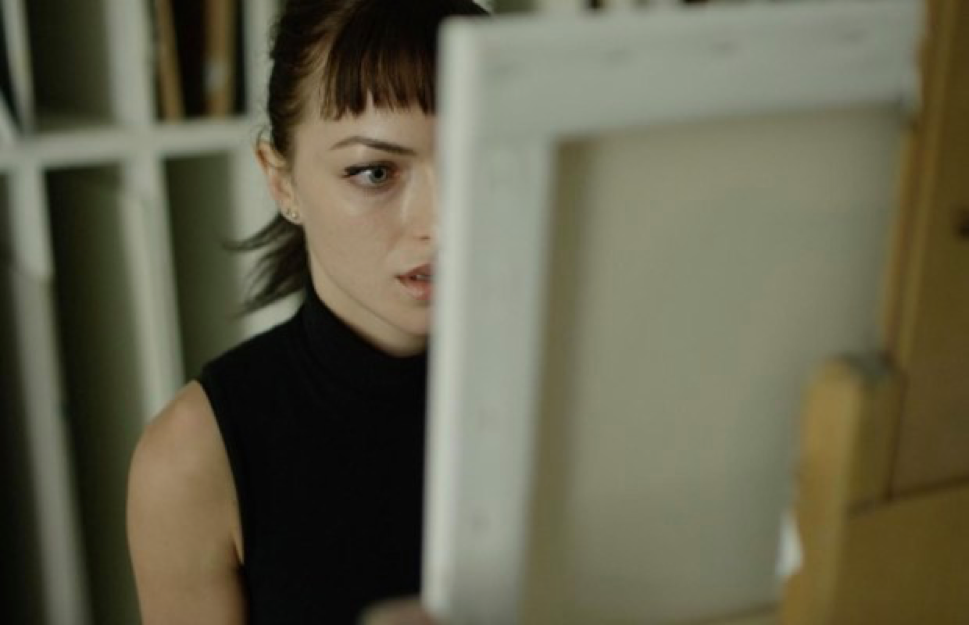
If someone right out of college would want to make a feature film, what would your primary piece of advice be?
L.M.: Don’t have cops, detectives, and murder scenes. [Laughs] What I mean is know if you’re too ambitious for your budget. When I wrote this I thought we were being very realistic for our budget, but now that we’ve done it, I’ve realized to be smarter about where the heart of the film is and to figure out what you can lose. Sometimes you need to kill your babies. There were times where I had to change things. Moviemaking is tough and heartbreaking, but the more flexible you can be, the more creative things turn out. Also, partner up with the right people.
Speaking of, how many members of the key crew were people you had worked with before?
N.L.: I brought in the DP and had worked with his camera crew before. I had reached out to some people that were either too expensive or already booked, so on the creative side, we had people from all over. Honestly, everyone was wonderful, both the people we did and did not work with before.
Congrats so much on pulling this off, the fact that it played at SXSW is just a testament to its quality and the fact that it’s really something special and different. Thank you so much for chatting with me and hopefully when you move onto the next project we’ll chat again!
N.L.: Thank you so much. And absolutely, that would be great!


